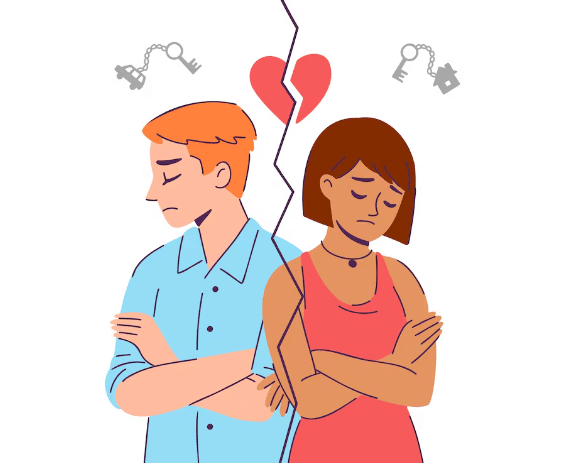Cheating in a Relationship always brings painful questions about trust and boundaries. Many feel unsure about what truly counts as betrayal, which creates tension between partners.
Some see emotional cheating or secret chats as serious, while others focus on physical acts, making the definition of infidelity difficult to agree on. These mixed views lead to confusion and hidden hurt.
This article explains what is considered cheating in a relationship, common cheating signs, emotional affairs, and how couples handle the impact in real life.
Cheating In A Relationship Explained: Quick Overview
Cheating breaks the trust and commitment that partners share with each other.
- Cheating is breaking emotional or physical boundaries in a committed relationship.
- It can include emotional closeness, physical acts, or online interactions with others.
- Infidelity often leads to deep trust issues and emotional pain.
- The impact depends on the situation, the strength of the relationship, and personal views.
- Healing requires honest conversations, expert guidance, and time from both partners.
- Preventing cheating starts with clear boundaries and open communication.
What Is Cheating In A Relationship?
Cheating in romantic relationships represents a fundamental violation of trust through deceptive behavior that breaches established boundaries and norms.

Cheating involves engaging in emotional or physical intimacy with someone outside a committed partnership without consent.
The definition of cheating in relationship varies significantly between couples, as some consider emotional connections or secretive friendships as serious violations, while others focus primarily on physical acts.
Common examples include sharing intimate secrets with a coworker, maintaining hidden dating profiles, engaging in flirtatious conversations, or pursuing sexual encounters outside the relationship.
What Are The Types Of Cheating In A Relationship?
Infidelity rarely follows a single pattern, instead manifesting through various behaviors that violate relationship trust.
Here are the primary types of cheating in a relationship that couples encounter:
1. Emotional Cheating
Emotional Cheating involves developing deep emotional connections, sharing intimate thoughts, or seeking comfort from someone outside the relationship.

Partners might confide personal problems, share romantic feelings, or create secret emotional bonds that replace intimacy within their primary relationship.
The betrayed partner often discovers late-night conversations, excessive texting, or their partner becoming emotionally unavailable while investing energy elsewhere.
2. Physical Cheating
Physical Cheating encompasses any sexual or intimate physical contact with another person, ranging from kissing and touching to sexual intercourse.

This type of cheating always feels most devastating because it involves crossing clear physical boundaries.
Even brief physical encounters can completely shatter trust, as they represent a conscious decision to be intimate with someone other than one’s committed partner.
3. Digital Cheating
Modern technology has created new avenues for betrayal through sexting, maintaining secret social media accounts, or engaging with dating apps while in committed relationships.

Using Tinder while in a relationship exemplifies this digital betrayal, as it demonstrates an active pursuit of alternative romantic connections.
Online interactions can feel less “real” to perpetrators but cause genuine pain to betrayed partners.
4. Micro-Cheating
Micro-Cheating includes hiding text messages, using fake contact names, deleting conversation histories, or maintaining inappropriate friendships.

While individually minor, these behaviors create patterns of deception that erode trust over time.
Examples include regularly liking an ex’s photos, keeping dating apps “just for fun,” or meeting someone secretly for coffee.
Why Do People Cheat In Relationships?
Understanding the motivations behind infidelity helps prevent betrayal and address underlying relationship issues.
- Emotional dissatisfaction:
Emotional Dissatisfaction is one of the reasons that often drives people toward outside connections when they feel unheard, unappreciated, or emotionally neglected by their partner. - Communication breakdowns:
Communication breakdowns can be another reason for cheating in a relationship. The breakdowns create distance, leading individuals to seek validation and understanding elsewhere.
Some people cheat due to sexual incompatibility or unmet physical needs within their primary relationship.
According to research, Psychological factors like low self-esteem, narcissism, or attachment issues can drive people to seek validation outside their relationship.
Common Signs Your Partner May Be Cheating In A Relationship
Recognizing potential infidelity warning signs can help address issues before they escalate further.
Sign 1: Increased Phone Security
Suppose your partner starts to protect their phone more, such as by changing passwords, taking it everywhere, deleting messages, or getting nervous about notifications. Then, they may be cheating on you.

Sign 2: Behavioral Pattern Changes
If your partner suddenly changes their routine, has unexplained absences, or works late, always without clear reasons, it may reflect patterns seen in different types of cheaters.

Starting new hobbies that leave you out might also be small signs of cheating in a relationship.
Sign 3: Emotional Distance
Suppose your partner is growing cold, avoiding intimate conversations, showing less interest in your life, or becoming irritable when asked about their day or activities; in that case, they may be cheating on you.

Sign 4: Financial Inconsistencies
If your partner unnecessarily spends money and does not explain the reasons behind it, or if they hide credit card statements, then they might be cheating on you.

Sign 5: Defensive Reactions
If your partner becomes overly aggressive when asked simple questions, starts blaming you instead, or shows guilt by giving unusual gifts or extra attention, these could be signs that they’re cheating in the relationship.

Emotional Impact Of Cheating On The Relationship
Infidelity creates profound emotional trauma that extends far beyond the initial discovery. Betrayed partners experience intense feelings of shock, anger, and deep sadness that mirror the grief stages.
Many find comfort in reading relationship cheating quotes that reflect their pain and help process emotions.
Trust becomes shattered, making it difficult to believe anything their partner says, even about mundane daily activities.
Many develop anxiety, depression, or post-traumatic stress symptoms that affect their work, friendships, and overall mental health.
The cheating partner often experiences guilt, shame, and fear of losing their relationship, while simultaneously dealing with the consequences of their choices.
Both individuals struggle with damaged intimacy, as physical and emotional closeness becomes complicated by painful memories and broken trust.
Healing requires honest conversations, expert guidance, and time from both partners.
Can Cheating In A Relationship Be Forgiven?
Forgiveness after cheating is possible but requires tremendous commitment from both partners and often professional guidance.
Success depends on the cheating partner’s genuine remorse and willingness to rebuild trust transparently.
Recovery involves the unfaithful partner taking full responsibility, cutting contact with the third party entirely, and demonstrating changed behavior consistently over time.
Those learning how to apologize for cheating should know that forgiveness doesn’t always mean the relationship can be saved.
Conclusion: Cheating In Relationships Causes Betrayal, Mistrust, And Emotional Damage
Cheating in relationship brings a kind of hurt that words can hardly explain, but it does not always mean the end. With patience and the right effort, couples can slowly rebuild the trust that was once broken.
The best way forward is open talking, setting clear limits, and understanding each other’s needs. Even when things feel heavy, counseling or guidance can help in finding balance again.
If you are struggling with doubts or signs of cheating, don’t ignore them. Start the conversation today; healing begins with one honest step.
FAQs
Texting can be cheating if it involves secrecy or an emotional connection outside the relationship.
Flirting may be considered cheating depending on the couple’s agreed-upon boundaries.
Talking isn’t always cheating unless it crosses emotional or physical boundaries.
Fantasizing alone isn’t cheating, but acting on it or hiding it can harm the relationship.







